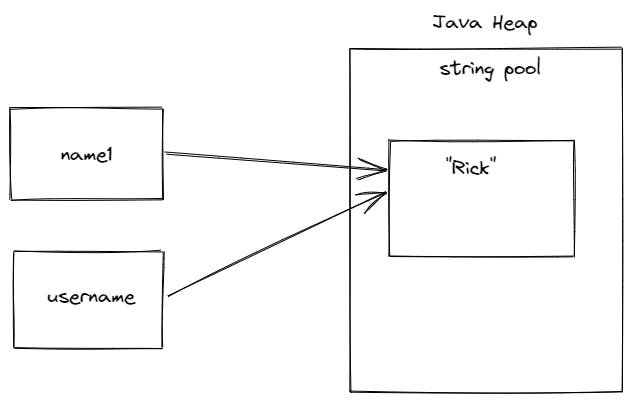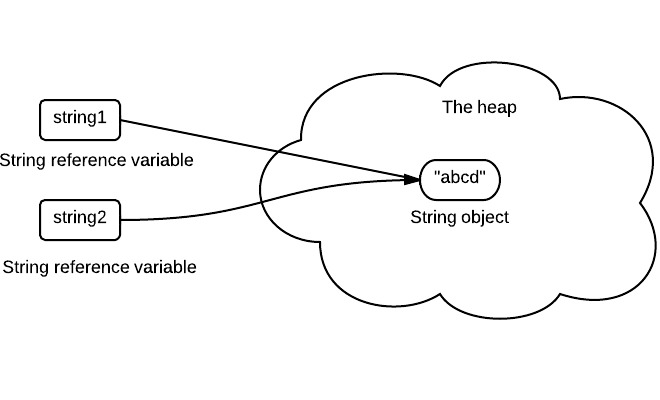What Is Immutable Strings and Exactly How It Functions
In the realm of programs, understanding the concept of unalterable strings is critical for producing durable and safe and secure applications. Unalterable strings describe strings that can not be altered after they are created, guaranteeing data integrity and predictability within the code. This basic principle plays a vital duty in different programs languages and uses an unique approach to managing data. By checking out the ins and outs of just how immutable strings operate, one can uncover a globe of advantages and possibilities that can raise the top quality and efficiency of software advancement.
The Essentials of Unalterable Strings
Immutable strings, as a fundamental principle in programming, are personality series that can not be changed as soon as they are produced. This implies that as soon as a string is assigned a value, that value can not be modified. In languages like Python and Java, strings are unalterable objects, bring about different ramifications in terms of memory monitoring and information stability.
One of the crucial advantages of immutable strings is that they supply a complacency in data adjustment. Because the web content of an immutable string can not be changed, it ensures that the original information remains intact, lowering the risk of unplanned adjustments during program implementation (Why are strings immutable in Java?). This residential or commercial property likewise simplifies debugging processes, as programmers can trust that when a string is specified, its worth will certainly not be accidentally modified
When a new string is produced based on an existing one, instead than changing the initial string, the brand-new worth is saved independently. In general, comprehending the fundamentals of immutable strings is essential for grasping shows ideas and enhancing code effectiveness.
Benefits of Unalterable Strings
Building upon the safety and security and efficiency benefits of unalterable strings, their advantages encompass enhancing code dependability and simplifying simultaneous shows tasks. By being unalterable, strings can not be customized after creation, which removes the threat of unexpected adjustments in the information they save. This intrinsic immutability guarantees that when a string is created, its worth remains continuous throughout the program's implementation, minimizing the possibilities of insects brought on by unexpected modifications.
Additionally, immutable strings contribute to code dependability by making it much easier to reason regarding the state of a program. Since strings can not be transformed, designers can rely on that a string will certainly constantly hold the very same worth, streamlining debugging and upkeep efforts. This predictability results in a lot more dependable and steady codebases.

Implementation in Programs Languages
Within different shows languages, the incorporation of unalterable strings is a fundamental facet that affects just how data is managed and manipulated within code structures. The implementation of unalterable strings varies throughout various programming languages, with each language providing its own systems to sustain this idea.

In comparison, languages like C and C++ do not have integrated assistance for unalterable strings. Developers in these languages have to manually execute immutability by applying regulations within their code to avoid straight alterations to string items.
Finest Practices for Dealing With Immutable Strings
When managing unalterable strings in programming languages like Java and Python, adhering to ideal practices makes certain safe and effective information control. One of the vital ideal techniques is to use StringBuilder or StringBuffer as opposed to directly controling strings, especially when taking care of extensive concatenation procedures. These courses supply mutable options for string control, aiding to prevent unnecessary memory appropriations and improving performance.
In addition, when functioning with sensitive information such as passwords or API secrets, it is important to prevent storing them as plain text in immutable strings. Making use of protected storage space systems like char ranges or specialized collections for dealing with delicate details assists mitigate security threats associated with immutable strings.
Real-world Applications and Instances
Discovering useful executions of unalterable strings in numerous markets exposes their considerable effect on information stability and system reliability. In the healthcare market, immutable strings play a critical function in guaranteeing the security and confidentiality of individual data. By avoiding unapproved adjustments to sensitive details such as clinical documents and prescriptions, unalterable strings assist maintain compliance with stringent personal privacy regulations like HIPAA.
Economic establishments also take advantage of the immutable nature of strings to top article enhance the safety of consumer information and deal records. Unalterable strings aid protect against fraud and unapproved changes to financial information, offering a durable protection against cyber dangers and guaranteeing the trust and confidence of clients.

Conclusion
Best methods for working with unalterable strings consist of avoiding direct adjustments and using methods that return new string things. Real-world applications of unalterable strings consist of information file encryption, caching, and string control jobs.
Immutable strings refer to strings that can not be changed after they are produced, making certain data integrity and predictability within the code. When a new string is created based on an existing one, rather than modifying the original string, the brand-new value is saved independently.In languages like Java and Python, strings are immutable by default, implying that once a string object is developed, its value can not be changed - Why are strings immutable in Java?. Best methods for working with immutable strings include avoiding straight modifications and utilizing methods that return new string objects. Real-world applications of unalterable strings include data file encryption, caching, and string adjustment jobs